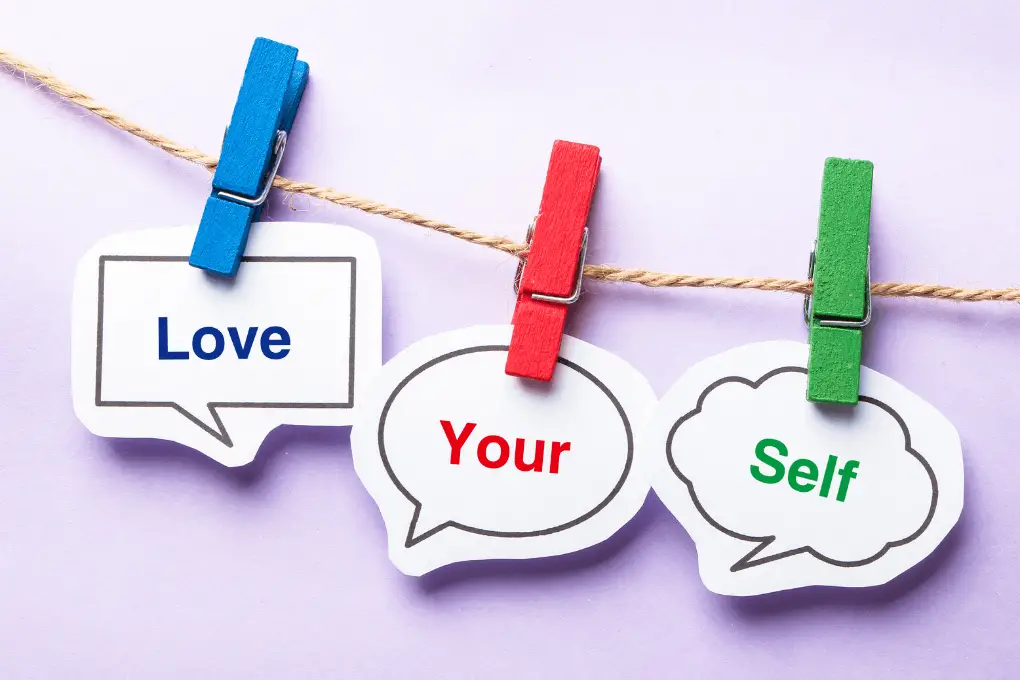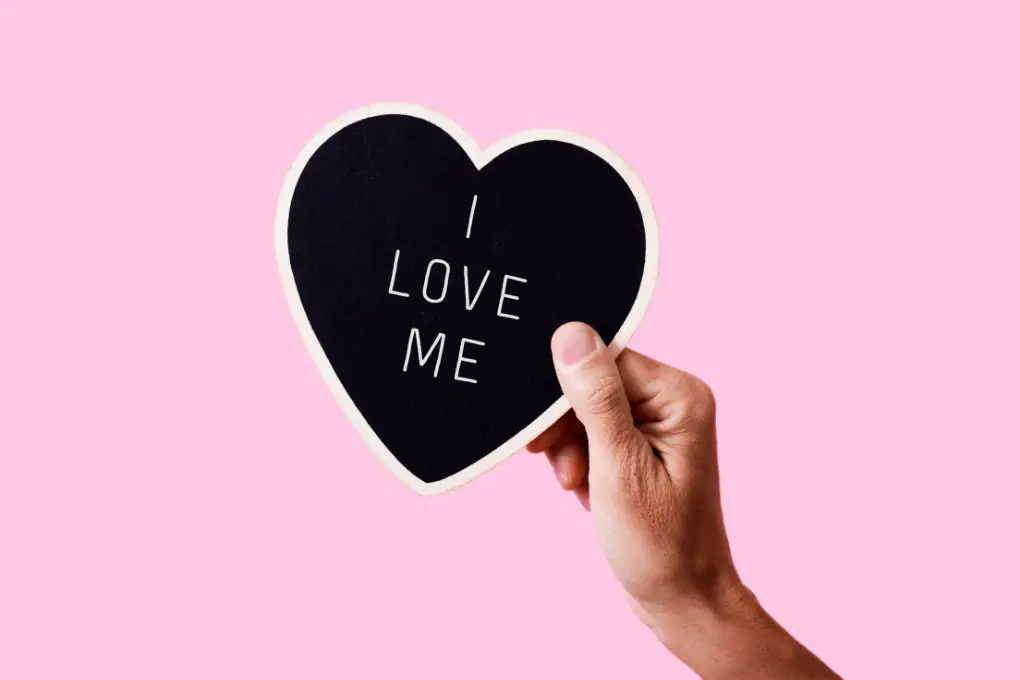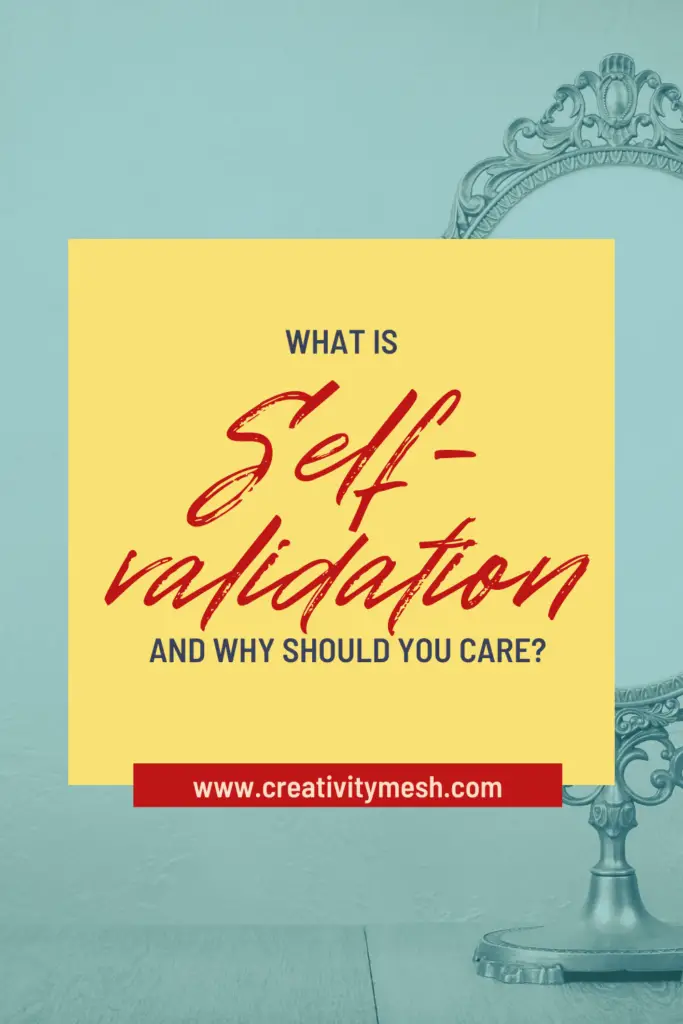Self-validation is something we should all learn about, even if you’re not the most “inward” person. Self-validation is a way of working through your thoughts and feelings to bring yourself to a happy and healthy state.
But how do you go about self-validation? What is self-validation? Most importantly, why should you care?
Read on to find out!
[divider width=”full”]
Recommended Reading:
- How to Increase Personal Productivity in the Workplace: 11 Tips to Help You Accomplish More by Doing Less
- Why Is It Good To Have a Positive Mindset? 14 Good Reasons Why
- Get Rid of Negative Thoughts: How to Cleanse Your Mind from Negativity
[divider width=”full”]
Isn’t validation a bad thing to obsess about?

Many of us associate “validation” with negative concepts and emotions. We see it as a drawback or as a weakness. After all, we were raised in a society where seeking validation is equivalent to being weird or having an overly-self-obsessed personality.
But if we try to look at things from a different perspective, we might see validation in a different light. Besides, in one way or another, each one of us has undergone at least once a phase in our lives where we badly need validation from ourselves and even from others.
In other words, validation isn’t an entirely bad thing. Unless, of course, you’re obsessing over it in an unhealthy way.
The good news is that there are many ways to get validation without going through any sort of emotional turmoil. In fact, when we learn how to validate ourselves properly, we can become more self-confident and less needy.
What is self-validation?

Self-validation is a process by which we work through our thoughts and feelings to bring ourselves to a happy and healthy psychological state. It’s a process of self-acceptance.
From a deeper perspective, self-validation further pertains to the process of embracing yourself – including your experiences, thoughts, and feelings. It allows you to know who you are as a person. It makes you identify your core values, principles, beliefs, and other aspects that make you a rational and emotional being.
It’s important to note that self-validation doesn’t mean that you’ll never feel sad again or that you won’t ever experience negative emotions. This is because every human being can experience sadness, that feeling of anger, and other negative feelings. However, self-validation means that you will accept these emotions for what they are and then move on.
Why should I care about self-validation, and why is it so important?
If you’ve been reading this article, chances are you already know that you shouldn’t allow your negative thoughts and overwhelming emotions to control you. But if you still don’t understand why it is so important, here are some self-validation effects that you might want to put in mind:
1) Self-validation is essential for happiness.
When we accept ourselves fully, we can live life with greater peace and joy. If you want to be happier, you must first accept yourself. And since self-validation is a crucial step towards accepting ourselves, it’s also necessary for achieving happiness.
2) Self-validation helps you overcome anxiety and depression.

As mentioned above, self-validation is essentially a process of self-love. When we love ourselves, we naturally start loving everything else around us, too. As a result, we no longer fear anything and stop feeling anxious.
3) Self-validation increases your confidence.
When we self-validate, we come to terms with our own thoughts and the variety of feelings we experience. This allows us to realize that thoughts and feelings are just, thoughts and feelings. There may be more intense emotions and feelings than others, but they are what they are – thoughts and feelings.
So instead of trying to change them, we simply embrace them, process them in a way that we understand, and move on. We do this because we believe that those thoughts and feelings are part of who we are.
4) Self-validation improves relationships.
When we self-validate and recognize our thoughts and feelings, we can communicate better with people. Since we’re no longer afraid of expressing our opinions, we’re free to speak up and share our ideas. We’re also free from the guilt that comes with not saying what we think.
5) Self-validation leads to success in life.

When we acknowledge our mistakes and learn from them through self-validation, we become more successful in life. We can eventually achieve great things by learning how to deal with failures and disappointments.
6) Self-validation gives meaning to life.
The most meaningful thing in life isn’t money, fame, or power. It’s the ability to help others. When we validate ourselves, we’re able to see ourselves as someone who can serve others. In turn, this allows us to give back to society.
7) Self-validation makes us stronger.
By acknowledging our weaknesses, we’re able to grow stronger. We’re able to develop new skills and improve upon old ones. This ultimately makes us more useful to other people.
How do you process self-validation?

Let me tell you this up front: it will be a difficult step to take. Besides, you need to go through an emotional process that will test you. But it’s just one of the obstacles you need to go through to finally be able to know yourself better.
As you go through the uncomfortable process of self-validation, you need to evaluate all the aspects of your life. By doing so, you’d most likely see your failures, weaknesses, and regrets in a different light.
Of course, you don’t have to just focus on the negative things about yourself. You just have to remember that the moment you embrace yourself, and all that is good in you, along with the imperfections, you give yourself the chance to improve. Instead of being content with who you are, you aspire to be better! Self-validation allows you to push yourself to the limits and achieve greater heights!
Self-validation, though not an easy process, can be done by doing these steps:
1. Recognize your feelings and your needs.
Recognizing your feelings and needs does not equate to being self-centered; instead, it means that you acknowledge that you are human, just like everybody else. As an individual, you can feel so many emotions.
For example, if you say that you are stressed about the noise brought about by recent events and conclude that you need some “me time” to hibernate, then that means that you recognize your feelings and needs – and that you are a step toward self-validation.
2. Accept your feelings freely.
When we try to assess ourselves, we will come across a range of emotions. Some are positive, while others are negative. There will be intense emotions as well. However, no matter what these range of emotions are, the key here is to accept those emotions without judging yourself for having them. You are human, after all, just like everybody else.
For example, if you feel extremely angry or upset about something because you were deeply hurt – that’s okay! That’s totally normal. It’s part of the human experience.
But if there’s one thing you should be aware of is this: the feelings you have right now could be a byproduct of your past experiences. You likely feel this way because something similar has happened in the past, and you don’t want the same thing to happen again.
If you determine these feelings and accept them the way they are, you will understand many things about your ability to heal and manage yourself.
3. Eliminate exaggeration in labeling your feelings.

How you label your emotions could primarily affect how you feel.
You might think this idea is preposterous, but trust me, words are more powerful than you think! If you use too much of them when describing your feelings, you’ll end up exaggerating them. This is because you’re trying to make sense out of something that doesn’t make sense.
Think about it: when you said you were enraged, were you really enraged? Or were you, in reality, just angry? Or perhaps, just plain annoyed?
When you felt down, how did you describe that feeling? Were you sad? Or were you just disappointed? Frustrated? Or worse, depressed?
How would it have felt if you labeled that “enraged” feeling as “an annoyed feeling” instead?
The point is, you’re probably not using the exact word that described exactly what you’re experiencing at that very moment. As a result, you might have exaggerated your words slightly in your head.
Because here’s the thing, our brains will ultimately believe the things we “tell” ourselves.
That “annoyed” feeling? We could easily convince our brains that it’s more than that – a stronger emotion, like anger or rage. And we are not always aware of it, but we often do that by exaggerating our words. So, try to eliminate this self-destructing habit by being more mindful of your thoughts and emotions.
Instead of saying you’re “angry,” try saying you’re “annoyed.” Instead of saying you’re ‘depressed’, try saying you’re just ‘a little down.’
If you’d like to know more about how you can create an accurate reflection of yourself and effectively manage your emotions, I highly recommend you check out this book.
4. Consistently validate yourself.
Self-validation is a repetitive process. It is a cycle. The sooner you understand that, the better it will be for you. Besides, how do you expect others to see your worth if you, yourself, are unable to do it?
So, keep reflecting and looking into your emotions and feelings. Be kind to yourself and learn to embrace your whole being as much as possible. Do affirmations regularly to lift your thoughts and feelings.
Here are some affirmations or validating statements you can make to yourself:
- I am worthy.
- I appreciate myself.
- Pain is a sign of life.
- I am my own person.
- How can I do better?
- What makes me happy?
- I am a work in progress.
- It is okay not to be okay.
- I am unique and beautiful.
- I’ve done a fantastic job!
- What do I genuinely need?
- I’ve given my best! Hooray!
- This shall be a lesson for me.
- My failures do not define me.
- I am proud of what I’ve become.
- There is nothing wrong with crying.
- I am a step closer to my goals!
- I am proud of what I’ve accomplished.
- My emotions, feelings, and thoughts are valid.
- My value is not based on what other people have to say.
- This is totally normal, and there is nothing I should be anxious about.
[divider width=”full”]
Recommended Reading:
- How to Forgive Yourself for Wasting Time (for Better Productivity & Time Management)
- 18 Reasons Why Are Goals Important And Other Things You Need to Know About Effective Goal-Setting
- Best Books on Creativity: 13 Must-Read Books On Creativity for 2022
[divider width=”full”]
How do I get over needing validation from others?
You need recognition and establishment, but it does not mean these have to come from other people. If you consistently feel the need to be recognized or validated by other people, then following these simple tips may help you gain more confidence in yourself:
1. Manage your social media visibility.

Social media can be a double-edged sword. On one hand, it helps us connect with people all around the world; on the other hand, it also allows us to compare ourselves to others.
Social media is so powerful in a way that it can create a different dimension of our perceived reality. People who constantly seek validation online will do everything they can to fit in with a specific trend just because it’s cool to do so. But the truth is, the more they give in to such trends, the more they lose their self-worth and the beauty of their uniqueness.
If you feel that being on social media platforms can lead to negative emotions, then, by all means, try to minimize your exposure to them. Or better yet, get rid of them altogether.
2. Celebrate your wins.
There is no such thing as little steps when it comes to your journey towards a better YOU. Achieved something lately? Celebrate!
In fact, you need to celebrate all your accomplishments, no matter how big or small they may be. Those celebrations don’t have to be fancy, though. They can simply be something like taking a break from your daily routine and spending time with friends or family.
The point is you need to acknowledge your successes and make sure you’re aware of them. This way, you’ll be able to build on them instead of letting them go unnoticed.
3. Listen to your inner voice.

You are often bombarded with external noises so much that you begin to identify yourself based on what you hear.
But guess what? People will always have something to say.
You do good, and they will comment. You do nothing, and they shall criticize you, but none of these matters as much anymore than what you know about yourself.
Instead of listening to non-stop “you should have” or “you should be,” I urge you to listen to “I feel that…”, “I need to…” and “I am…”
Self-validation allows you to listen to your inner voice more so you won’t drown in other noises that really don’t matter to you.
[divider width=”full”]
Recommended Reading:
- Characteristics of a Know-it-all Person and How to Deal with Them
- 13 “New Month, New Goals” Tips to Make the Rest of This Year Your Best Year Yet
- 9 Surprising Advantages of Creativity in Business
[divider width=”full”]
Conclusion

The process of self-validation may entail some adjustments, changes, and challenges, but none of these should stop you from developing a stronger identity and knowing yourself. You will be surprised by the power you hold once you’ve learned the art of self-validation. You will no longer rely on external voices, or other people’s opinions, for you know your real worth and value as a person.
What are your plans to achieve self-validation? Share with us your plans below!
Did you enjoy our What is Self-Validation and Why Should You Care? blog post? Share this with a friend who might need this!

Disclaimer:
This post may contain affiliate links. Meaning, if you click on one of the product links, I will earn a small commission at no cost to you. Thank you for supporting Creativity Mesh.






